REGISTER NOW for the full three-part In Focus Research Series on ‘Resilience and Adaptation in Rehabilitation’
Hear from health practitioners, clinicians, people with lived experience, researchers and industry experts about the impact of pandemic events during 2020 on rehabilitation systems, services, connections and community. Each session will showcase a different perspective on disruption and adaptation in rehabilitation and designing resilient systems and responsive services, advancing technology, creating adaptive practices and interventions for the future.
This session highlights the citizen focus on resilience, rights, and consumer centred community during system disruption.
This is a FREE event for everyone and we invite you to register attend this virtual In Focus Research Series session and hear more about Resilience and Adaptation in Rehabilitation. This research series will be held via virtual platform across three days, for 90 minutes each research series. We are pleased to release our preliminary session program, featuring research and health experts discussing the impact of pandemic events during 2020 on rehabilitation systems, services, connections and community.The full research session program will be released shortly.
This session is part of a three-part virtual event series, with all session details outlined below:
Thank you for your support of The Hopkins Centre research series. We look forward to seeing you at each research series event session.
Any queries, please email the hopkinscentre@griffith.edu.au and the research support group will assist you.
Speakers
We are pleased to release our preliminary session program, featuring research and health experts discussing the impact of pandemic events during 2020 on rehabilitation systems, services, connections and community.
- Mr Kevin Cocks AM DUniv, Patron for The Hopkins Centre and Executive General Manager Integrated Accessible Transport Network, Department of Transport and Main Roads
- Ms Kelsey Chapman, Research Fellow and PhD Candidate, The Hopkins Centre
- Mr Col Mackereth, Peer Support Leader at Spinal Life Australia, Motivational Speaker, Thought Mentor and Bestselling Author
- Dr Eloise Hummell, Research Fellow, The Hopkins Centre
- Ms Michelle Moss, Director, Policy and Strategic Engagement at Queenslanders with Disability Network
- Dr Kara Burns, Adjunct Research Fellow, The Hopkins Centre
- Mr Justin Hua, Citizen Research and Ambassador, The Hopkins Centre
We are also excited to feature The Hopkins Centre HabITec flagship project and Citizen Challenge initative. Focused on designing for all, you will hear from Dr Kara Burns and Mr Justin Hua, in a design pitch for better solutions in digital health.
Kevin Cocks AM DUniv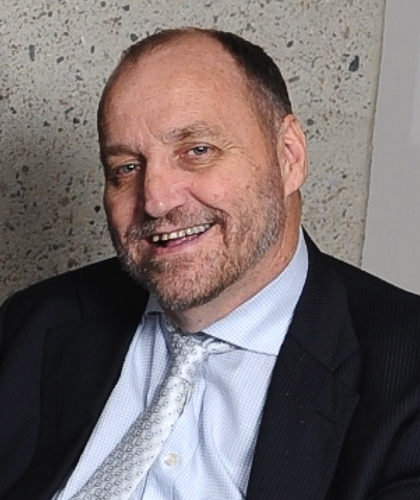
Patron for The Hopkins Centre and Executive General Manager Integrated Accessible Transport Network, Department of Transport and Main Roads
Dr Kevin Cocks is a well-respected champion of human rights. He has dedicated himself to pushing for an inclusive, accessible and diverse Queensland through legislative and policy reform and State-wide advocacy. Until recently, he was the Queensland Anti-Discrimination Commissioner. In February 2018, his term of appointment came to an end as Queensland’s Anti-Discrimination Commissioner, but he will now continue to push for evidence-based reform through his important role as Patron of The Hopkins Centre.
Kevin has pursued a lifelong fight for the rights of people with a disability, and has always been an inspiring advocate and role model. As a young man, Kevin sustained a C6 complete quadriplegia in a sporting accident. Through his personal experiences, he brought a wealth of knowledge and wisdom to the role of Anti-Discrimination Commissioner, where he focused on protecting the principles of dignity and equality for everyone. Before he was appointed as Commissioner in February 2011, he used his passion to advance the work of Queensland Advocacy Incorporated, a legal advocacy organisation dedicated to protecting the human rights and fundamental needs of people with a disability in Queensland. One of his most notable achievements was in 1993 when Kevin successfully fought the State Government in court to have an accessible lift installed at the front of the Brisbane Convention Centre. Kevin also worked with Spinal Life Australia in launching the annual Robert Jones Oration event in memory of the late disability advocate. This event continues to drive important conversation around accessibility, a topic that must never fall off the national agenda.
Kevin's outstanding contribution to the reform and development of professional disability services in Queensland and nationally was recognised in 2003 with the award of a Centenary Medal for service to the Australian community. In 2005 he received an Australian Human Rights medal from the Human Rights and Equal Opportunity Commission for his dedication to disability rights. Then in 2010, he was made a Member of the Order of Australia in recognition of his contribution to making Queensland a better place for people with a disability, as an advocate for the promotion and protection of individual human rights, and as a contributor to the reform and development of disability services.
Read more about Kevin, the Ambassador council and citizen-led research here.
Kelsey Chapman 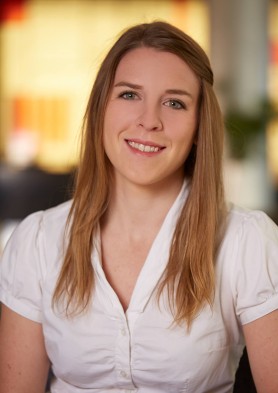
Research Fellow, PhD Candidate and Dignity Project Research Lead, The Hopkins Centre, MHIQ, Griffith University
Kelsey is the research lead of The Dignity Project Flagship program at The Hopkins Centre. She is also the lead researcher on a new collaboration with the Department of Transport and Main Roads. Kelsey specialises in human rights research, disabilty research and rights, critical disability theory, and dignity theory. She has extensive experience in ethics, governance, and data management and security as well as supporting fellow researchers in project and research management.
Kelsey’s research interests include the areas of human rights, ethics, dignity for people with disabilities, and critical disability theory. She is currently leading The Dignity Project in understanding how people with disability experience social, personal, and systemic dignity.
Kelsey is inspired by the people around her, quietly dedicating themselves to disrupting the societal and attitudinal barriers that limit accessibility, inclusion, and equality for all people. She is also inspired by a commitment to disrupting life and business as usual and working with others to produce meaningful change.
Col Mackereth
Peer Support Leader at Spinal Life Australia, Motivational Speaker, Thought Mentor and Bestselling Author
Col has C5/6 tetraplegia, consequences of a diving injury in 1978. He is a member of Spinal Life Australia’s Peer Support team sharing his vast lived experience with newly injured patients in the Spinal Injuries Unit 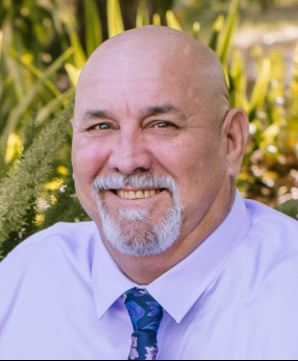 at the PA Hospital. “I am privileged to be able to help people to rebuild their lives after something as catastrophic as a spinal cord injury.” “I believe that the only thing that anyone has total control over is the way you think – it’s your current thoughts that determine your future.”
at the PA Hospital. “I am privileged to be able to help people to rebuild their lives after something as catastrophic as a spinal cord injury.” “I believe that the only thing that anyone has total control over is the way you think – it’s your current thoughts that determine your future.”
After 11 months of rehabilitation in the Spinal Unit, Col returned home to Charters Towers to break the news to his parents, that even though he was unable to; push his wheelchair across the road, transfer in or out of bed, wash himself, dress himself completely, feed himself or prepare his own meals or do housework of any kind, he still intended to leave home and live independently.
Just over a year later, after one of the steepest learning curves ever and a lot of hard work, heartbreak and sacrifice, Col found myself living back in Brisbane, sharing a flat with another ex-patient of the spinal unit. He was doing all his own cooking, cleaning, personal care and housework and driving himself to work every day.
Since sustaining his injury, he has experienced, and survived, many of the major life events that most people go through in their life’s journey. He’s been married (3x), divorced (twice), been arrested (twice), become a father (4x), buried a child (twice) built a home (twice) and owned more cars than he cares to remember. He’s lived in the city and the bush and a short stint at Grey nomading.
After returning to work in 1980, Col has never been unemployed. He’s been a goat farmer, draftsman, bookkeeper, adventure camp coordinator, maths tutor, statistician, managed an employment agency and worked in a hardware store. Col believes his current role in the Peer Support Team is by far the most challenging, yet most rewarding.
Recently, Col has written and published a book sharing some of his lived experiences and highlighting the lessons he’s learned along the way. Col’s philosophy on life is: "Life's about what you're going to do - not what you have done."
Dr Eloise Hummell 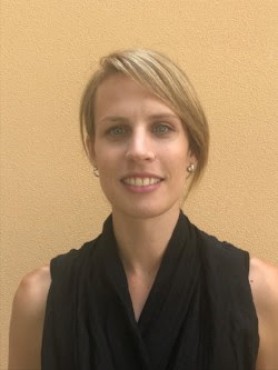
Research Fellow, The Hopkins Centre
Eloise's general research expertise is in cultural and social research of a qualitative nature. Her PhD was focused on Catalan ethnic identity in Spain, exploring contexts of resistance, change and contestation across topics including politics, language, cultural performance, space, nationalism and independence, history and memory, government policies. Eloise conducted ethnographic fieldwork in Spain using participant observation, interviews and archival data. Previous research work has also been qualitative, using a range of approaches including focus groups, art-based methods, photography and narrative, and interviews, with a variety of participants including high school students, teachers, university students, Indigenous leaders, and members of community groups. Projects have included an Indigenous community group history, Indigenous art-based project design and assessment for high school students, and outdoor learning spaces on university campuses.
Eloise is generally interested in the complex and shifting factors that influence identity construction, social well-being, and government policy. She has been developing a qualitative research approach for the Farming 4 Care project, especially in regards to utilising and modifying an arts-based method called body-mapping to use in focus groups with students. She is also working on a concept analysis of institutional racism.
Michelle Moss 
Director, Policy and Strategic Engagement at Queenslanders with Disability Network
Michelle Moss has worked in the human services sector for over 20 years including disability, health, and domestic violence.
She has worked in both Government and non-Government sector in a variety of roles including direct support work, complex behaviour support, policy, training and education, consumer and community engagement and project management.
She has a strong commitment to ensuring the voice of people is part of the public policy and the design, planning and evaluation of services and systems.
Dr Kara Burns
Adjunct Research Fellow, The Hopkins Centre 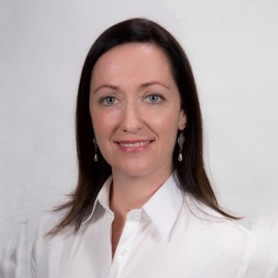
Dr Burns has worked as a healthcare professional for move then 10 years, with 5 years specialised in promoting and managing health innovation. Her focus in 2020 is on research, health tech development and innovation for Queensland Health and Griffith University. Working with eHealth QLD, Kara's role is to broker digital innovation projects with doctors, nurses, allied health and technologists. Kara uses her knowledge of health service management, clinical care and an ability to shape value propositions that translate to key health priorities to secure internal funding. Kara is also an Adjunct Research Fellow with The Hopkins Center (Griffith University) and the Expert in Residence for Transformative Technology Australasia. In these roles, she advocates for ways we can empower people in the health system and in their own lives. Right now. she is co-creating a Citizen Challenge to support patients with spinal injuries and disability to develop new products. Many of her publications are in JMIR the highest ranked journal in health services and technology globally (IF 5.03). Kara is focused on building her extensive network of healthcare contacts and working diligently to support the start-up community.
Justin Hua
Citizen Ambassador and co-researcher at the HabITec Lab, The Hopkins Centre 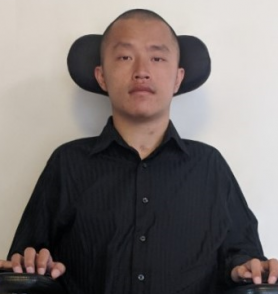
Justin is a Citizen Ambassador and co-researcher at the HabITec Lab. As a volunteer to this initiative, and with a keen interest in assistive technology and problem solving, Justin is focused on developing technologies that enable people with disabilities to live more freely and independently.
Justin became a C3 Quadriplegic due to a motor vehicle accident (my older brother also becoming a C6-7) in April 2014 and was in ICU for 3 weeks then in the Spinal Injuries Unit at the PA Hospital for another 7 months undergoing therapy and rehabilitation. Justin is grateful for the opportunity to apply himself as an ambassador in a way that can hopefully help others living with a disability using my experiences and to learn more about the challenges that other people in a similar situation may face.
For further information:
The Hopkins Centre is leading the way in interdisciplinary collaborative and responsive research that is user-informed and embedded in practice and service delivery. It provides a vehicle for finding research-based solutions to complex challenges across disability and rehabilitation. Through partnerships and respectful sharing of diverse knowledge, The Hopkins Centre is generating system wide evidence and promoting the use of existing data to extend the quality, capacity and impact of rehabilitation and disability research.
For further information, please check out the event website and The Hopkins Centre website where you will learn more about the centre and how we aim to find better solutions to complex systemic challenges through interdisciplinary collaborative and responsive research that is embedded in practice and informed by people with disability.

